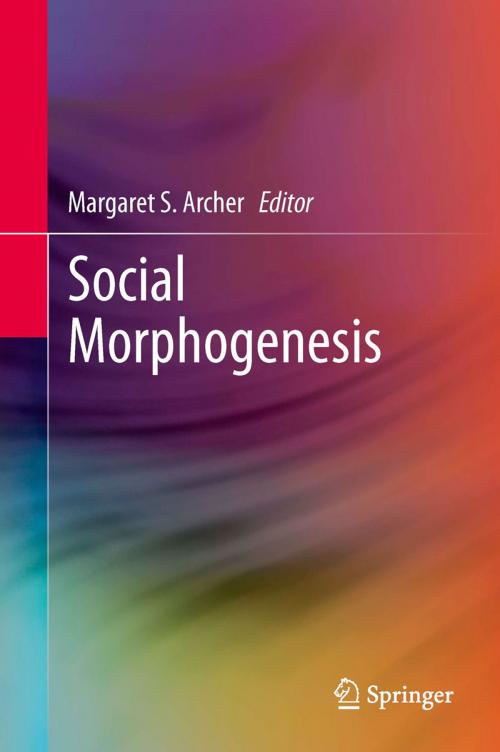Social Morphogenesis
Nonfiction, Social & Cultural Studies, Political Science, International, International Relations, Social Science, Sociology| Author: | ISBN: | 9789400761285 | |
| Publisher: | Springer Netherlands | Publication: | February 20, 2013 |
| Imprint: | Springer | Language: | English |
| Author: | |
| ISBN: | 9789400761285 |
| Publisher: | Springer Netherlands |
| Publication: | February 20, 2013 |
| Imprint: | Springer |
| Language: | English |
The rate of social change has speeded up in the last three decades, but how do we explain this? This volume ventures what the generative mechanism is that produces such rapid change and discusses how this differs from late Modernity. Contributors examine if an intensification of morphogenesis (positive feedback that results in a change in social form) and a corresponding reduction in morphostasis (negative feedback that restores or reproduces the form of the social order) best captures the process involved. This volume resists proclaiming a new social formation as so many books written by empiricists have done by extrapolating from empirical data. Until we can convincingly demonstrate that a new generative mechanism is at work, it is premature to argue what accounts for the global changes that are taking place and where they will lead. More concisely we seek to answer the question whether or not current social change can be regarded as social morphogenesis. Only then, in the next volumes will the same team of authors be able to remove the question mark.
The rate of social change has speeded up in the last three decades, but how do we explain this? This volume ventures what the generative mechanism is that produces such rapid change and discusses how this differs from late Modernity. Contributors examine if an intensification of morphogenesis (positive feedback that results in a change in social form) and a corresponding reduction in morphostasis (negative feedback that restores or reproduces the form of the social order) best captures the process involved. This volume resists proclaiming a new social formation as so many books written by empiricists have done by extrapolating from empirical data. Until we can convincingly demonstrate that a new generative mechanism is at work, it is premature to argue what accounts for the global changes that are taking place and where they will lead. More concisely we seek to answer the question whether or not current social change can be regarded as social morphogenesis. Only then, in the next volumes will the same team of authors be able to remove the question mark.















